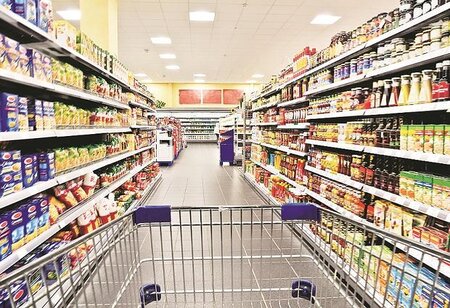FMCG companies increase prices to protect operating margins
 Packaged consumer goods companies have either raised prices of products such as detergents, soaps, creams, toothpaste, edible oils and tea or they are planning to do so to offset the rising costs of key raw materials. Rising prices of crude, palm oil and tea and robust demand growth of consumer goods have emboldened firms to effect moderate price hikes. Palm fatty acid distillate, a chemical used in all home and personal products, has surged 36% in the past 12 months. Freight and packaging costs have also increased.
Packaged consumer goods companies have either raised prices of products such as detergents, soaps, creams, toothpaste, edible oils and tea or they are planning to do so to offset the rising costs of key raw materials. Rising prices of crude, palm oil and tea and robust demand growth of consumer goods have emboldened firms to effect moderate price hikes. Palm fatty acid distillate, a chemical used in all home and personal products, has surged 36% in the past 12 months. Freight and packaging costs have also increased.
Still, companies are wary that passing on the full impact of the increase in input prices to consumers may throw the nascent demand recovery off course. Analysts, however, warned that companies may have to raise prices further to maintain operating margins.
“Packaged food brands using palm oil as a key raw material require a 3-16% price hike while companies in home and personal care need around 3-13% price rise to sustain margin at current levels,” Sagarika Mukherjee, an analyst at Elara Capital, said in a note on March 8.
Marico Ltd has raised prices by 7% in large stock-keeping units of its Nihar Shanti Amla hair oil, apart from withdrawing in select Parachute packs offered in the third quarter
Dabur India Ltd said it may consider “selective and judicious” price hikes in its portfolio while undertaking cost efficiencies. “Recent months have seen inflation inching up for some key raw materials. Besides, the rise in fuel prices would add to the inflationary pressures. We are working towards managing the impact through our synergies and cost efficiencies. However, we may consider undertaking only selective and judicious price hikes, which will also depend on the competitive scenario in the market, to protect our margins,” said chief financial officer Lalit Malik. The company sells hair oils, juices, shampoos and over-the-counter products.
Wipro Consumer Care and Lighting, which makes the Santoor brand of soaps, took an 8% hike in its soap portfolio over the past 3-4 months. “Palm oil prices have gone up dramatically, which is a key ingredient as far as soaps are concerned, and you’d have seen everybody’s announced price hikes in soaps. Even for Chandrika, which we make from coconut oil, we’ve taken a price hike. The price hikes have been to the tune of 8% in the past 3-4 months,” Vineet Agrawal, chief executive of Wipro Consumer Care and Lighting and executive director, Wipro Enterprises, said in a media roundtable earlier this month.
Elara tracked price hikes taken by top FMCG firms in February. Hindustan Unilever Ltd (HUL) hiked prices in its mass-market detergent brand Wheel to the tune of 14-17% quarter-on-quarter and on select detergent bars; there is no price change in premium laundry brands. In its December quarter earnings call, HUL said it is seeing inflation in certain categories such as skin cleansing and tea. On its skin cleansing portfolio—that includes brands such as Lux and Lifebuoy—the company raised prices in that portfolio by about 2.5%, its management said in a post earnings call.
Marico Ltd has raised prices by 7% in large stock-keeping units of its Nihar Shanti Amla hair oil, apart from withdrawing in select Parachute packs offered in the third quarter. In edible oil, Marico has raised prices by 5-8% quarter-on-quarter across SKUs to offset sharp inflation in vegetable oil. For companies that sell snacks at ₹5, ₹10 and ₹20 price points, absorbing the costs is the only route available. “What we are trying to do is whichever category has a very sensitive price point, we are trying to lower grammage or trying to rationalize channel margins and then absorb as much as possible. We are also working on new productivity measures wherever possible,” said Subhashish Basu, chief operating officer of Prataap Snacks.




